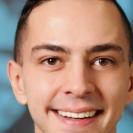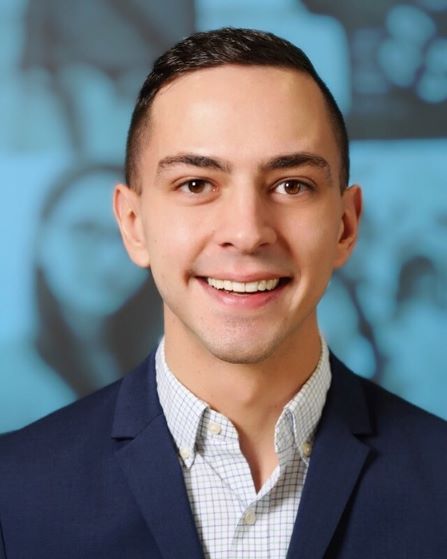Young Professionals: Legacy Giving Isn’t Off Limits

Asking a fundraiser how they ended up in this profession is always fun. I’ve met art history majors who stumbled into event fundraising; nurses and doctors with mid-life career changes; and my favorite, attorneys who moved from ‘money to mission.’ They did it right if you ask me and my student debt.
My story? As a college sophomore majoring in sociology with plans of being a professor, I stumbled into fundraising when it was the only summer internship offer that I received. Not very sexy, but I ended up falling in love with fundraising. Seven years later and 28 years old, I’m a legacy gift officer with The ALS Association’s national office.
That’s right, a young professional in legacy giving!
Despite what you might have heard or have been told, legacy giving fundraising is not just for the seasoned professionals with post-nominals! It’s not always the final step in the fundraising career path. My fellow YPs: You can get into legacy giving, and you can start now!
The Battle to Prove Yourself
Imagine you’re a legacy gift prospect. You’re going to meet a gift officer at their office to get a tour, see your ‘gifts in action,’ and inevitably get an ask about that legacy gift you’ve been talking about for months. The staff person has always been responsive and helpful, even though he sounded young over the phone. You get to the office, and as he walks out to greet you—you realize he’s about 30-years-old. How do you react to that? With pleasant surprise and intrigue? Speculation? Maybe even insult? Do you ask yourself, “Is he even old enough to help me?”
Thankfully, I’ve never had a donor question my abilities based on my age. The skepticism has always been from fellow fundraisers. From emerging leaders, to seasoned professionals, to even interviewers (in HR-appropriate ways, of course), I’ve constantly had to deal with “being too young for legacy giving.” I’ve had to work hard to prove myself to coworkers. Along the way, I have been able to find great mentors, sign up for professional development courses, and find organizations and supervisors willing to teach me.
Unfortunately, some of those undercover age-related questions and assumptions have been the grenade pins that ended a few interview processes for me. But, they were partly the driver for me in deciding to get my CFRE. I wanted to ‘play with the big wigs’ and show them how dedicated I am to this profession and earn their respect. In retrospect, I’m glad that was only part of my decision-making process.
There’s Hope for Young Professionals in Legacy Giving
If you’re new to legacy giving, you should familiarize yourself with Penelope Burk and her company, Cygnus Applied Research, Inc. Specifically, The 2018 Burk Donor Survey included an investigation into “Bequest Motivation and Future Potential.” Over 12,000 donors completed this survey that included the question: “Would you be comfortable with a Planned Gifts Officer who is under the age of 30?”
Only 15% said, “No, I would not be comfortable.”
When confronted with ageism in the field, this research is always a reminder that I can and should be here. After all, it wouldn’t be very donor-centric to give up when the legacy giving space is under-resourced, and 85% of donors are comfortable with my age.
One of my favorite things about legacy giving: Getting to meet some of our most dedicated supporters with the deepest connections and stories to help them turn their philanthropic gifts into a philanthropic legacy. Not every fundraiser gets opportunities like this! It’s an honor to meet, learn from, be inspired by, and help these donors all in pursuit of a shared mission.
If you’re interested in legacy giving, there’s space for you here. These are some recommendations to help you get started:
- Find a mentor. Consider the legacy giving lead at your current organization or maybe someone at your favorite organization/dream job. Reach out and ask for an introduction meeting. Alternatively, look to the Association of Fundraising Professionals’ mentorship program or your local AFP chapter to see what programs they have. Having someone to guide, motivate, and build you up when you’re overwhelmed or facing ageism is helpful.
- Read, watch and listen. Dive into the work of Dr. Russell James, Penelope Burk, Greg Warner, Kim Klein and Craig Wruck. These are just a few of my go-to professionals when looking for free (articles, blog posts, and YouTube videos) and paid (textbooks, manuals, and webinars) content. Get inspired and learn the basics! Show that you’re serious. It’ll build your confidence and credibility.
- Focus on your professional development. Do you have a professional development budget with your employer? Express your interest in this field and focus your spending on learning in this area. Attend local AFP chapter-related sessions and purchase resources and guides. If you can, I highly recommend attending AFP’s International Fundraising Conference. Join the Individual Giving and Planned Giving-focused sessions and networking opportunities.
- Find a role with growth potential. My first job that involved legacy giving was one-half grant writing for the individual giving team and one-half helping to manage data for a legacy giving program. I had the grant writing experience and took this opportunity to explore legacy giving. Can you find something similar? Consider a role assisting an individual giving team or program and gradually focus more of your work on legacy giving. Maybe this will lead you into a field position or, at the very least, allow you to fully explore your interest in the field.
Legacy giving can—and should—be an option for young professionals if that’s their area of interest. If you build a supportive team, do your research, learn the in’s and out’s, put in the work, and position yourself wisely, then you can break into legacy giving, and you can start now!

 Casey J. Saunders, CFRE, is the associate director of planned giving for The ALS Association's National Office. He manages a portfolio of nation-wide planned giving donors and prospects and acts as a consultant for the Association’s chapter network on all things related to planned giving. Prior to this role, he helped manage the planned giving program at the National Office of the Cystic Fibrosis Foundation. He received his CFRE a year ago and has more than 5 years of experience as a fundraiser. He’s a member of the AFP DC chapter and is active in AFP at the local and global levels.
Casey J. Saunders, CFRE, is the associate director of planned giving for The ALS Association's National Office. He manages a portfolio of nation-wide planned giving donors and prospects and acts as a consultant for the Association’s chapter network on all things related to planned giving. Prior to this role, he helped manage the planned giving program at the National Office of the Cystic Fibrosis Foundation. He received his CFRE a year ago and has more than 5 years of experience as a fundraiser. He’s a member of the AFP DC chapter and is active in AFP at the local and global levels.